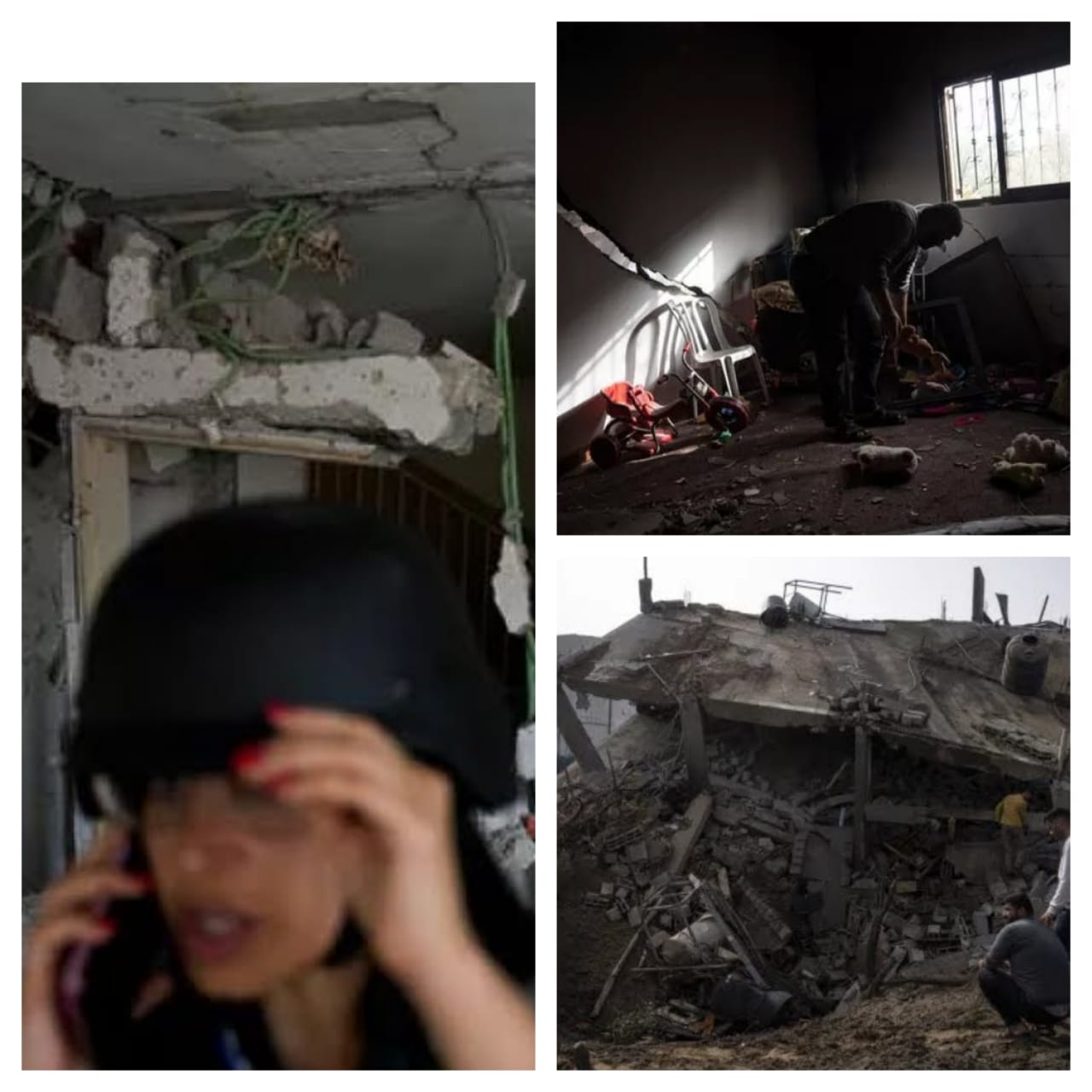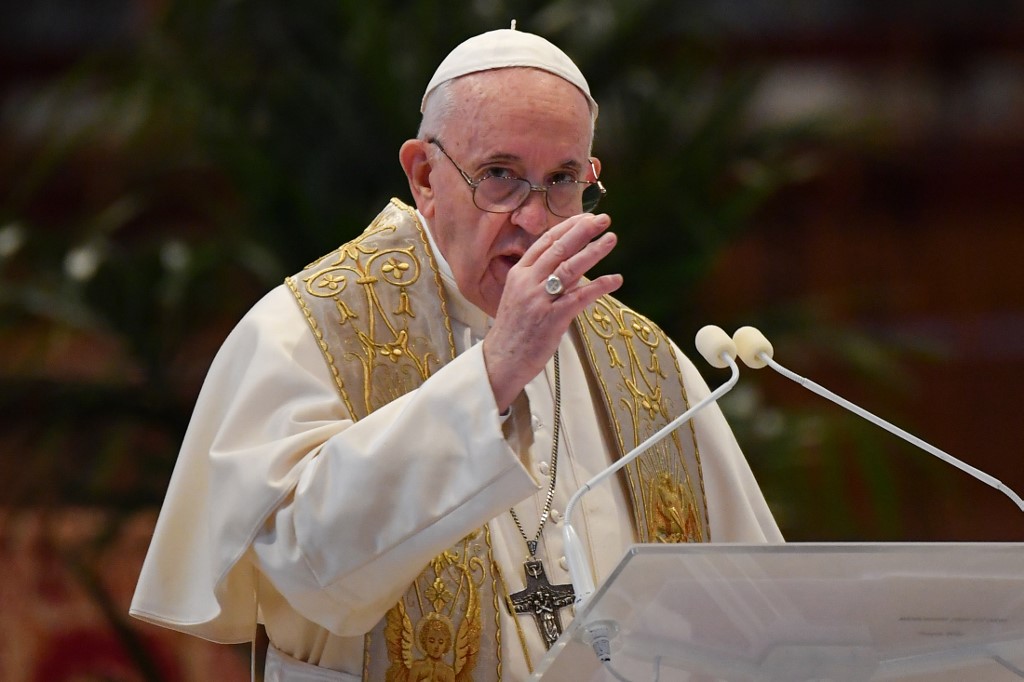International News
Israeli-Palestinian Confrontation Enters Third Day, Escalation Persists

In a protracted escalation of violence, Israel and Palestinian militants have engaged in their most intense confrontation in months, extending into a third consecutive day.
Israeli airstrikes have targeted locations in the Gaza Strip, while militants have responded by launching rockets towards Jerusalem and southern Israel.
As of Friday, there have been no immediate reports of casualties on either side. International mediators have been actively involved in pursuing a ceasefire to quell the ongoing hostilities.
The recent clashes have resulted in the loss of 31 Palestinian lives in Gaza, alongside the death of a 70-year-old individual in central Israel. The situation remains highly volatile as both sides grapple with the consequences of the conflict.
Hopes for a possible ceasefire in the Israel-Palestinian conflict were briefly dashed when a series of rockets were fired from the Gaza Strip, triggering warning sirens near Jerusalem.
The rockets broke a 12-hour period of calm, during which Egypt, Qatar, and the United Nations had been working towards a potential truce between the two sides.
Residents of Israeli settlements near Jerusalem were alarmed as explosions rocked the area, accompanied by billowing black smoke, following what appeared to be the interception of a missile.
One rocket struck an open field in the Bat Ayin settlement in southern Jerusalem, as confirmed by Josh Hasten, a spokesperson for the region.
Videos captured the tense scene as Israelis hastily exited their vehicles and took cover upon hearing the blaring of sirens. The anxiety-inducing moment serves as a stark reminder of the ongoing volatility in the region.
In response to what they perceive as targeted killings and persistent aggression against the Palestinian people, the “joint operations room,” a coalition of Palestinian factions based in Gaza, claimed responsibility for launching the rockets.
Their actions further illustrate the deep-rooted tensions and retaliatory dynamics fueling the conflict.
The office of Prime Minister Benjamin Netanyahu has confirmed that he is engaged in a security assessment amid the ongoing conflict.
The Israeli military has announced that its warplanes are targeting Islamic Jihad positions in response to the rocket attacks. The recent exchanges of fire have primarily involved Israel and Islamic Jihad, the second-largest militant group in Gaza after Hamas, who governs the territory.
According to Israeli sources, their strikes since Tuesday have resulted in the deaths of five senior Islamic Jihad figures.
In retaliation, Islamic Jihad has launched over 800 rockets towards densely populated areas of Israel. In response, Israel’s military has conducted airstrikes targeting at least 215 locations in Gaza.
According to Gaza’s housing ministry, the Israeli bombardment and shelling have resulted in the destruction of 47 housing units, rendering them completely uninhabitable, while 19 others have sustained severe damage.
As a result, 165 Palestinians have been left homeless due to the destruction of their homes. Additionally, nearly 300 other homes have suffered varying degrees of damage as a consequence of the attacks.
According to the United Nations humanitarian office, the current fighting in the Gaza Strip has resulted in the tragic loss of life for at least 31 Palestinians. Among the casualties are seven children and four women.
The Israeli military and the Palestinian Centre for Rights have confirmed that at least three of the children were killed as a result of misfired Palestinian rockets. Additionally, over 90 Palestinians have been reported wounded, as stated by the Palestinian health ministry.
The civilian fatalities have garnered condemnation from the Arab world and have raised concerns among the United States and European nations.
Throughout its past four conflicts with Hamas, Israel has faced consistent accusations of war crimes, primarily attributed to the significant number of civilian casualties and its utilization of heavy weaponry in the densely populated Gaza Strip.
In response to these allegations, Israel argues that Palestinian militant groups, including Hamas, exploit the presence of civilians by conducting their operations within residential areas, effectively using them as human shields.
Hamas, the de facto civilian government in Gaza, has been making efforts to uphold a truce with Israel while also striving to prevent further deterioration of the dire living conditions in the blockaded enclave.
Following the devastating 11-day war in 2021, which resulted in the loss of over 260 Palestinian lives, Hamas has been balancing the delicate task of maintaining stability and addressing the pressing needs of the population.
Hamas, the group that took control of Gaza in 2007, has refrained from direct involvement in the current round of fighting, as it did during a similar episode of violence last summer.
In a display of restraint, Israel has primarily focused its airstrikes on Islamic Jihad targets, indicating a more limited scope of engagement.
There were indications that both sides were nearing a ceasefire before the eruption of violence on Thursday. However, the relative calm observed on Friday raised hopes for progress in resolving the conflict.
According to Hamas officials, Egypt has intensified its diplomatic efforts to halt the fighting through active engagement and dialogue with both Hamas and Islamic Jihad.
Islamic Jihad figures have expressed conflicting views regarding the ongoing ceasefire talks. Senior official Ihsan Attaya voiced frustration on Friday, stating that the mediators had failed to provide any guarantees to address their concerns.
A key point of contention has been Islamic Jihad’s demand for Israel to halt its policy of targeted killings.
In contrast, Islamic Jihad political bureau member Mohamad al-Hindi sounded a more positive note.
Speaking from Cairo, where he traveled to engage in discussions regarding a ptential truce, he expressed hope that both sides would reach an agreement and honor it promptly.
He said ” I hoped both sides “would reach a ceasefire agreement and honour it today”
International News
Russia Launches Deadliest Attack On Ukraine As Ceasefire Hopes Fade
In the early hours of Thursday, Kyiv was rocked by a devastating Russian missile and drone attack, described by Ukrainian officials as one of the most brutal strikes on the capital since Russia’s full-scale invasion began in 2022.
The Ukrainian air force reported that Russia unleashed 70 missiles and 145 drones overnight, targeting several cities across the country.
The barrage on Kyiv left at least nine people dead and over 60 wounded, including six children.
READ ALSO: Suspected Attack: Explosion Strikes Russian Consulate In France
Air raid sirens blared across the capital around 1:00 a.m., warning residents to seek shelter.
Moments later, loud explosions shattered the night, lighting up the sky and shaking buildings. “Phone calls can be heard from under the rubble — the search will continue until we are confident that we have found everyone,” said Interior Minister Igor Klymenko.
He confirmed that two children remained unaccounted for amid the chaos.
Rescue workers scrambled to pull survivors from under collapsed buildings. Fires broke out across multiple apartment blocks, and damage was reported in at least 13 locations.
In one tragic scene in the Sviatoshinsky district, a woman sat on a foldout chair beside a covered body, gently stroking the arm of a loved one killed in the strike.
Nearby, a bloodied woman clutched her dog as a first responder spoke calmly to her, trying to provide comfort amid the destruction.
Prime Minister Denys Shmygal condemned the assault in stark terms. “Cruise and ballistic missiles, drones, air bombs — Russia is cruelly and cynically firing missiles at Ukrainian cities, killing people while the world is making efforts to establish peace,” he wrote on social media.
The attack came just hours after Ukrainian President Volodymyr Zelensky reiterated his call for a ceasefire. “Stopping the killings is the number one task,” Zelensky stated online following a meeting between his aides and Western officials in London.
However, any momentum toward peace appeared to falter. Russian President Vladimir Putin has yet to respond to Zelensky’s offer to halt airstrikes on civilian areas and previously dismissed a joint U.S.-Ukrainian proposal for an unconditional ceasefire.
“Putin demonstrates through his actions, not words, that he does not respect any peace efforts and only wants to continue the war,” said Foreign Minister Andriy Sybiga. Echoing that sentiment, presidential aide Andriy Yermak declared, “Putin shows only a desire to kill.”
Former U.S. President Donald Trump, speaking hours before the attack, claimed a peace deal with Russia was close.
He blamed Zelensky for stalling negotiations by refusing to accept Moscow’s annexation of Crimea, stating that Ukraine’s position “will do nothing but prolong the ‘killing field’.”
Meanwhile, Russian forces expanded their offensive to other regions.
In Kharkiv, at least seven missiles struck a densely populated residential district, according to city mayor Igor Terekhov. Russia’s defense ministry also reported downing 87 Ukrainian drones, including 45 over Crimea.
Earlier this month, Russia’s campaign of aerial terror intensified. A missile strike on the city of Sumy killed at least 35 people, while another attack on Zelensky’s hometown, Kryvyi Rih, claimed 19 lives — nine of them children.
International News
Panic In Istanbul As 6.2-Magnitude Earthquake Hits Marmara Sea
Residents of Istanbul were jolted by a 6.2-magnitude earthquake on Wednesday, which struck the Marmara Sea near the city’s western fringes, prompting widespread concern but causing no immediate casualties.
The quake, which occurred at 12:49 p.m. local time (0949 GMT), originated in Silivri, according to Interior Minister Ali Yerlikaya.
“An earthquake of 6.2 magnitude occurred in Silivri, Marmara Sea, Istanbul,” he confirmed on X, formerly Twitter. Yerlikaya also noted that tremors were felt in nearby provinces.
READ ALSO: Massive 7.7 Magnitude Earthquake Rocks Myanmar, Shakes Southeast Asia
Following the initial tremor, Turkey’s disaster management authority, AFAD, reported three more earthquakes ranging from 4.4 to 4.9 in magnitude.
The seismic activity sent people fleeing onto the streets, with many seen anxiously checking their phones or making calls.
“I just felt earthquake, I’ve got to get out,” said a decorator who dashed out of a fourth-floor apartment near Galata Tower. He declined to give his name, visibly shaken by the experience.
Despite the intensity, there were no reports of injuries or building collapses in the city of approximately 16 million people.
“Until now, we have no information about any buildings collapsing,” the governor’s office stated, urging residents to avoid entering structures that may have sustained damage.
Reassuring citizens, the Istanbul municipality also confirmed, “No serious cases have been reported so far following the earthquake in Istanbul,” in a post on X.
Tremors from the quake were reportedly felt as far as Sofia, Bulgaria, according to AFP journalists in the capital.
Authorities continue to monitor the situation as aftershocks persist and damage assessments are conducted across the region.
International News
JUST IN: Vatican Discloses Cause Of Pope Francis’ Death

The Vatican has disclosed that Pope Francis died of a stroke, which caused a coma and irreversible heart failure, according to his official death certificate released on Monday.
The 88-year-old pontiff passed away on Monday morning, nearly a month after being discharged from hospital following treatment for double pneumonia.
In the statement released by the Holy See Press Office, the cause of death was identified as “a stroke, followed by coma and irreversible cardiocirculatory collapse.”
READ MORE: JUST IN: Vatican Mourns As Pope Francis Passes Away At 88
The certification was issued by Dr. Andrea Arcangeli, Director of the Directorate of Health and Hygiene of the Vatican City State.
The medical report also detailed the Pope’s history of health challenges, including “acute respiratory failure caused by multimicrobial bilateral pneumonia, multiple bronchiectases, high blood pressure, and Type II diabetes.”
His death was confirmed through electrocardiographic thanatography.
“I hereby declare,” wrote Dr. Arcangeli, “that the causes of death, to the best of my knowledge and judgment, are as stated above.”
Pope Francis, born Jorge Mario Bergoglio, became the 266th leader of the Roman Catholic Church in 2013 and was widely recognized for his efforts to modernize Church doctrine and promote global social justice.
















